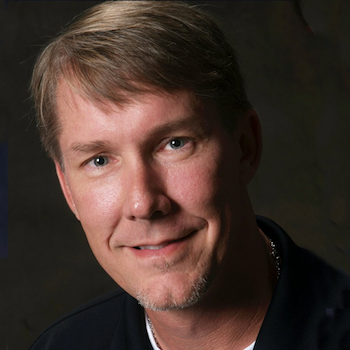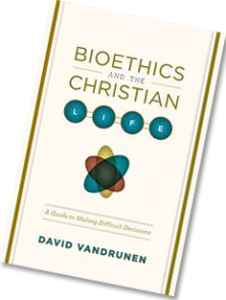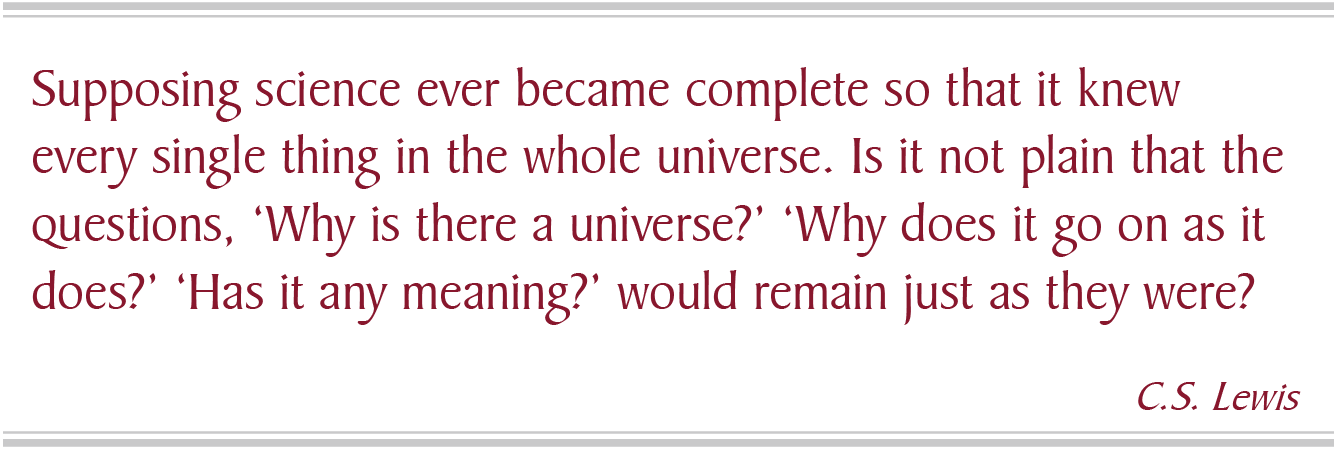Back to series


Recommended Reading:

C.S. Lewis and How Christians Should Think about Science
Click here to open a Print - Friendly PDF
| Readers of the Chronicles of Narnia series will remember Uncle Andrew from the book The Magician’s Nephew. Uncle Andrew dabbled in science and magic to create rings that sent people into different worlds. Though he could not control it, that magic culminated at book’s end with the eventual creation of Narnia (with a little help from Aslan).
In our world, Christians concerned with the direction of culture need to possess some basic level of scientific literacy. Colossians 1:16 tells us that, “by him all things were created, in heaven and on earth.”1 For Christians, to be studying God’s creation via science is to be studying the ways of God. Fortunately for us, C.S. Lewis has written extensively on science or specifically on how believers should think about science. Lewis himself was not antiscience. But he had grave concerns about the use of science to either manipulate nature or validate worldviews based on reductionism or naturalism. I thought of Uncle Andrew, and C.S. Lewis, while reading a recent news article about a woman who had three sons and desperately wanted to be a “girl-mommy.” After spending $40,000 on preimplantation genetic diagnosis (PGD), she finally gave birth to a daughter. PGD was designed originally to identify genetic diseases or chromosomal disorders such as cystic fibrosis or sickle cell anemia in embryos prior to being implanted into a woman’s uterus. The embryos are created through the process of in vitro fertilization (INF). INF is designed to manifest a pregnancy while PGD sorts for preferable embryos and, in some cases, enhances the embryos. After her daughter’s birth, the woman said, “She was worth every cent. Better than a new car, or kitchen reno.” Fertility doctors in the United States have found an expanding and profitable market using PGD to assist couples seeking to determine the gender of their child (Canada, Australia, and the UK prohibit the use of PGD for gender selection). Employing PGD for the purpose of gender selection is a particularly frightening cultural barometer. It combines selfishness, one of our worst human traits, with consumerism and our relentless quest to conquer nature using technology. That we’ve reached the point of being able to technologically determine gender is not surprising. Since the Enlightenment, scientific advancement has shifted its focus from revelation to conquest. It was Descartes who said man would become “like masters and possessors of nature.”
For believers who are monitoring the culture, it is particularly troubling to see that scientific advancements are quickly racing past existing laws. Enchantment with PGD and certain other scientific processes is, at the core, only a secondary symptom arising from the original illness of our sin nature. Society’s relentless pursuit to master science finds its inception from what Keats called the “habitual self.” Lewis wrote about the “habitual self” in The Problem of Pain. The self is concerned with its own wants and desires and sets itself apart from, or even above, God. The lure of the promise to “be like God” (Gen. 3:5) was at the heart of the Fall. Our society is so focused on self that we are bordering on collective and individual solipsism. Thus it would seem natural for those using PGD to see the decision to determine the sex of their child as a mere personal preference based solely on individual desire. The forces of consumerism help make this possible. Wants and desires are seduced by materialism’s promises of happiness and fulfillment based on the next acquisition or purchase. Consumerism inflames covetousness and attempts to offer each person the opportunity to live outside his or her current reality with the aid of easy credit. Choosing the gender of your child becomes another purchasing decision. Coke or Pepsi? Boy or girl?
The consequences of our increased freedom are all around us. At no time in history has a people group had more quantitative choices affecting lifestyle, and yet depression, brokenness, and addiction on both collective and individual levels are rampant. We are like the Israelites in Judges 21:25: “everyone did what was right in his own eyes.” For Christians wanting to influence the world at large, it is not so much what we think about science specifically; after all, there are divisions among believers on a range of topics, from the age of the earth to the evolutionary process. What really matters is how we think about science. In The Abolition of Man, C.S. Lewis wrote, “For the power of Man to make himself what he pleases means . . . the power of some men to make other men what they please.”2 Rightly understood, science is about process. Christians have a duty to monitor its purpose. Science is meant to explain things, not explain them away. This is how we are to frame our dialogue with culture. Last, when considering science, it is imperative that Christians remember the concept of image. Genesis 1:27 tells us, “So God created man in his own image, in the image of God he created him.” A biblical worldview that realizes humanity contains the spark of the Eternal stands in stark contrast to a purely scientific worldview that sees humanity as the physical product of strict naturalism combined with a bundle of Freudian complexes. As Christians, we must be ever vigilant to guard against a concept of science that fails to recognize the eternal worth of each individual. Uncle Andrew was ultimately confined to a big house in the country where he never attempted magic again. The rest of us will not be so lucky. |
|||
| Notes: 1. Scripture quotations in this article are from the English Standard Version. 2. C.S. Lewis, The Abolition of Man (New York: Collier Books, 1962), 72. |
|||

Joseph A. Kohm
Vice President for Development, CSLI & CSLI City Director, Virginia BeachJoseph A. Kohm, C.S. Lewis Institute Vice President for Development and City Director for Virginia Beach. Joe is an attorney and formerly worked as a Certified Major League Baseball Player Agent. He earned his Master’s in Management Science from the State University of New York at Oswego and both his J.D. and M.Div. from Regent University. Joe is the author of The Unknown Garden of Another’s Heart: The Surprising Friendship between C.S. Lewis and Arthur Greeves (Wipf and Stock, 2022.)

Recommended Reading:
Bioethics and the Christian Life: A Guide to Making Difficult Decisions, by David VanDruen, Crossway
 Just about everyone will face a difficult bioethics decision at some point. In this book a theologian, ethicist, and lawyer equips Christians to make such decisions based on biblical truth, wisdom, and virtue.
Just about everyone will face a difficult bioethics decision at some point. In this book a theologian, ethicist, and lawyer equips Christians to make such decisions based on biblical truth, wisdom, and virtue.
Though a relatively new discipline, bioethics has generated extraordinary interest due to a number of socially pressing issues.
Bioethics and the Christian Life places bioethics within the holistic context of the Christian life, both developing a general Christian approach to making bioethics decisions and addressing a number of specific, controversial areas of bioethics.
 COPYRIGHT: This publication is published by C.S. Lewis Institute; 8001 Braddock Road, Suite 301; Springfield, VA 22151. Portions of the publication may be reproduced for noncommercial, local church or ministry use without prior permission. Electronic copies of the PDF files may be duplicated and transmitted via e-mail for personal and church use. Articles may not be modified without prior written permission of the Institute. For questions, contact the Institute: 703.914.5602 or email us.
COPYRIGHT: This publication is published by C.S. Lewis Institute; 8001 Braddock Road, Suite 301; Springfield, VA 22151. Portions of the publication may be reproduced for noncommercial, local church or ministry use without prior permission. Electronic copies of the PDF files may be duplicated and transmitted via e-mail for personal and church use. Articles may not be modified without prior written permission of the Institute. For questions, contact the Institute: 703.914.5602 or email us.
-
Recent Podcasts
Ralph Waldo Emerson’s Philosophy and Influence
by David George Moore on July 26, 2024Ralph Waldo Emerson was a gifted nineteenth century...Read More
-
The Side B Stories – Nate Sala’s Story
by Jana Harmon, Nate Sala on July 19, 2024
-
Terrorism Through the Eyes of Faith
by Dennis Hollinger on July 12, 2024
-
Recent Publications
Hasn’t Science Proven That Belief in God Is an Outdated Superstition?
by Sharon Dirckx on July 1, 2024Many assume that scientific practice and belief in...Read More
-
Has the Bible Been Corrupted as Some Muslims Claim?
by Andy Bannister on June 1, 2024
-
Seeing Jesus Through the Eyes of Women
by Rebecca McLaughlin on May 15, 2024
0
All Booked
0.00
All Booked
0.00
All Booked
22194
C.S. Lewis’s The Abolition of Man Live Online Small Group 8:00 PM ET
https://www.cslewisinstitute.org/?event=c-s-lewiss-the-abolition-of-man-study-course&event_date=2024-10-02®=1
https://www.paypal.com/cgi-bin/webscr
2024-10-02

Next coming event
Days
Hours
Minutes
Seconds
C.S. Lewis’s The Abolition of Man Live Online Small Group 8:00 PM ET
On October 2, 2024 at 8:00 pmSpeakers

Joseph A. Kohm
Vice President for Development, CSLI & CSLI City Director, Virginia Beach
Team Members

Joseph A. Kohm
Vice President for Development, CSLI & CSLI City Director, Virginia BeachJoseph A. Kohm, C.S. Lewis Institute Vice President for Development and City Director for Virginia Beach. Joe is an attorney and formerly worked as a Certified Major League Baseball Player Agent. He earned his Master’s in Management Science from the State University of New York at Oswego and both his J.D. and M.Div. from Regent University. Joe is the author of The Unknown Garden of Another’s Heart: The Surprising Friendship between C.S. Lewis and Arthur Greeves (Wipf and Stock, 2022.)




 Whether PGD (or any scientific advancement) is “good” is largely the function of the inquisitor’s worldview. To the world, the
Whether PGD (or any scientific advancement) is “good” is largely the function of the inquisitor’s worldview. To the world, the 

